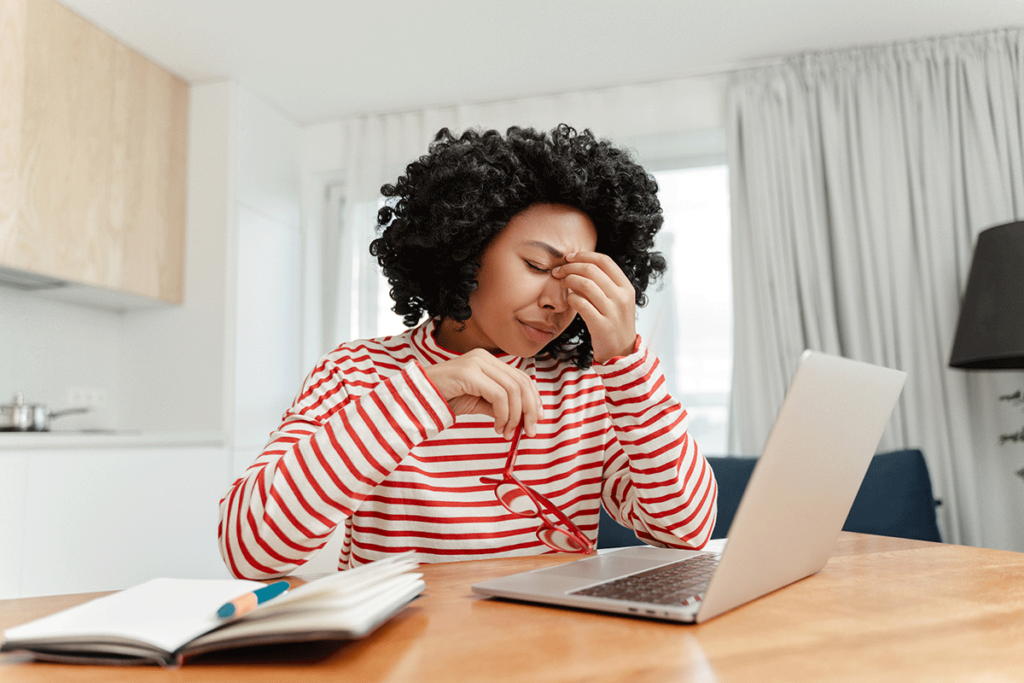Anxiety is one of the most common mental health conditions among Americans. About 20% of adults have one or more anxiety disorders, and so do nearly 10% of children under age 17. Anxiety is a treatable condition—if you suffer from an anxiety disorder, you can reclaim your life by seeking help. In addition to getting support from professionals who can diagnose and treat you, there are coping skills for anxiety that are typically very successful in managing symptoms.
Peer Mental Wellness offers outpatient mental health treatment, including an anxiety treatment program in Santa Ana, CA. To learn about Peer Mental Wellness, our anxiety treatment program, and what coping mechanisms for anxiety might work for you in conjunction with treatment, reach out today. Call 714.844.5473 or submit our online form to connect with one of our professional, compassionate staff members.
How Do I Know if I Have an Anxiety Disorder?
Worry and stress are normal parts of life. People may feel stressed about a big test or presentation or worry about a sick parent or the threat of bad weather. These everyday emotions are to be expected. If you feel the racing heart and thoughts that might be associated with situational stress—but there is nothing particularly stressful happening—you may have an anxiety disorder. For many with anxiety, a trigger for symptoms may not appear to others as a trigger at all.
The disconnect between your own experiences and those of others may add to your worry. What is happening to you? Understand that anxiety is not a character flaw or failing. It is a relatively common condition that is treatable.
Signs of Anxiety
Reach out for help if you have any concerns that you may have an anxiety disorder or if some or all of the following are true:
- Your state of mind is getting in the way of your job, relationships, or other aspects of daily life
- Your sleep and eating habits are off due to feelings of stress and worry
- You may be self-medicating with drugs or alcohol to mute the worry that seems unpredictable and difficult or impossible to work through
- Your anxious feelings may be triggering physical health issues, such as high blood pressure
- Along with anxious feelings, you also feel depressed and may be having thoughts of self-harm
Meanwhile, there are coping mechanisms for anxiety that complement the treatments and support you will receive from professionals.
Five Coping Skills for Anxiety
Some anxiety coping skills are listed below that may help you manage and can always support whatever protocol you and your therapist think is best for you.
- Avoid substances that can exacerbate your anxiety, such as caffeine, cigarettes, alcohol, or recreational drugs. They can worsen your anxiety and lead to dependence and addiction. Instead, focus on healthy whole foods and getting good sleep.
- Prioritize exercise and, if possible, fresh air. You do not need to do hours of cardio at the gym to benefit from exercise. However, a regular habit of some physical activity will help with both the mental and physical symptoms of anxiety. Take a walk or bike ride, or turn on the music and dance in your kitchen.
- Practice mindfulness. Even if you have never tried meditation or yoga before, you can benefit from even the early forays into mindfulness. Download a meditation or visualization app on your phone and spend 15 minutes a day centering and making your mind as quiet as possible. There is no wrong way to do this. Anything that lowers your mind’s reactivity is helpful, even a quiet walk in the woods.
- Be aware of things, people, or situations that trigger your anxious feelings. If you feel anxious in crowded public spaces, shop late at night or go to the gym at an off-peak time. If being late spikes your stress, try to leave the house 5 minutes before you think you need to. You cannot always avoid all stressful situations, but planning strategies ahead of time can, in itself, be an anxiety-reducing strategy.
- Seek out supportive friends and family for regular interactions because the isolation that often accompanies anxiety will not do you any favors. Try to connect with others and share what you are going through with trusted friends.
You deserve to live a full life that is not curtailed by an anxiety disorder. Let Peer Mental Wellness help.
Call Peer Mental Wellness Today to Learn Coping Skills for Anxiety
A highly treatable and fairly common mental health condition, anxiety does not have to hold the reins. Let Peer Mental Wellness return them to your capable hands.
Get started by calling us at 714.844.5473 or submitting this online form so we can connect you with someone who will answer all your questions and put your mind at ease. Help is here.




